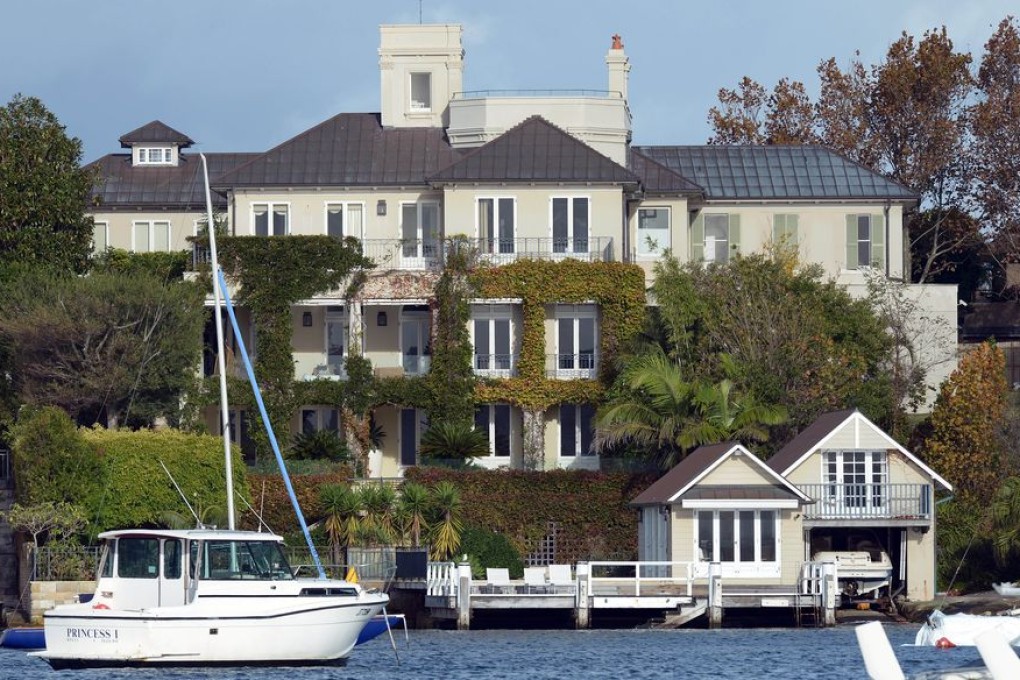Investors pour into property market
Growing interest from Chinese buyers is driving up prices. Reports by Karen Jackman

Chinese investment in Australian real estate has grown by almost 60 per cent in the past two years, with buyers and developers focusing largely on Sydney and inner-city Melbourne. Huge interest from cashed-up Chinese buyers has been a major driver for house prices in some suburbs of Sydney and Melbourne to rocket by as much as 27 per cent over the past year. The median house price in Sydney rose by 15 per cent last year.
Australian media headlines often trumpet the multimillion-dollar sales of waterfront mansions. But savvy Chinese investors are also flocking to cheaper units. In the Sydney harbour suburb of Mosman, 30 per cent to 40 per cent of sales over A$3 million (HK$20.8 million) have reportedly been to Chinese buyers. The Sydney Morning Herald recently reported an auction for a Chatswood apartment at which all 16 registered bidders were from China.
Savvy Australian property agents are now travelling to China to talk up Sydney properties and advertise homes in Putonghua. Agent Ray White has set up an office in Beijing, boasting that's where they now "catch all the best fish".
Juwai.com, the leading broker connecting Chinese buyers with overseas property, estimates that 63 million Chinese are rich enough to buy property abroad. It claims that over the past three years, the number of Chinese buyers in Australia has grown ninefold, faster than anywhere else, and that they favour Melbourne over Sydney.
The website's executive officer, Andrew Taylor, says Chinese real estate buyer interest in Australia is up about 370 per cent from this time last year, which is a huge increase that is bound to have an immense effect on the market. "Investment and lifestyle are major considerations. Quality education and medical - and, of course, immigration - are strong factors," he says. And it's not all big money. "In fact, the most popular bracket is A$550,000 to A$750,000 for houses and apartments."
A large number of these properties will be purchased by parents to accommodate the enormous number of Chinese students studying in Australian tertiary institutions, which totalled more than 150,000 last year.
For wealthy Chinese looking for a safe haven for their money and for themselves, it is hard to bypass Australia. The most recent figures available from the Foreign Investment Review Board show Chinese property investment during the 2011/2012 financial year was worth A$4.2 billion, putting China third behind the US (A$8.16 billion) and Singapore (A$5.7 billion) as the biggest foreign investor in the Australian domestic property market.
The impact of those buyers on Sydney property has only just begun. As the value of the Australian dollar falls, foreign buyers will be paying less for real estate, and the Chinese government is relaxing restrictions on citizens wanting to buy overseas assets.
Real estate agents report that Chinese buyers often buy several apartments in a new development as a family group.
Joseph Ngo, an agent for LJ Hooker in Glen Waverly, says paying A$100,000 to A$200,000 over the market price "is not a problem for these buyers".
Robert Mellor, managing director of economic forecaster BIS Shrapnel, estimates 17,000 apartments will be built in inner Melbourne during the next three years - with many of the projects undertaken by Asian developers.
Chinese or Chinese-backed developers bought more than A$600 million worth of development sites in Sydney in the past year, with real estate firm Colliers International noting that nearly 5,000 units are planned for the sites.
Many of these towers will be marketed heavily in China, tempting investors into a market they cannot effectively monitor, with consequent risks that they may pay over the odds and further inflate prices. But this is causing some disquiet in Australia, with calls to change the foreign property ownership rules.
The flood of unregulated investment, coupled with other factors driving up Sydney house prices, is slowly changing the city's social fabric in a way that will be felt for generations to come, Stuart University ethics professor Charles Hamilton warned in The Australian newspaper.
Couples planning families can no longer afford to buy in the suburbs where they grew up, where they have built friendship networks or where they work. Forced further west and south, they are progressively cut off from their old neighbourhoods.
Former Macquarie Group banker Bill Moss has called on the states - particularly New South Wales - to levy an additional 5 per cent stamp duty on foreign investors, claiming Australians will be priced out of some housing markets. He fears a social and economic imbalance.
"We could end up with buildings in the suburbs that are 100 per cent owned by Chinese, 100 per cent rented by Chinese, built by Chinese building companies, and that are not available to the Australian market," he told The Australian. Moss also called for the reintroduction of a 50 per cent cap in the number of units offshore buyers were allowed to purchase in new apartment buildings in Australia.
The biggest residential property sale in Australia last year was that of Altona in the Sydney suburb of Point Piper in March, for A$54 million to Xiuzhen Ding, a China-born Melbourne resident who is sole director of Chaimovich Investments. And another Point Piper home sold to Chinese millionaire Qiu Yafu for A$33 million in April last year. In 2012, he also bought Australia's largest cotton farm, Cubbie Station, in Queensland.